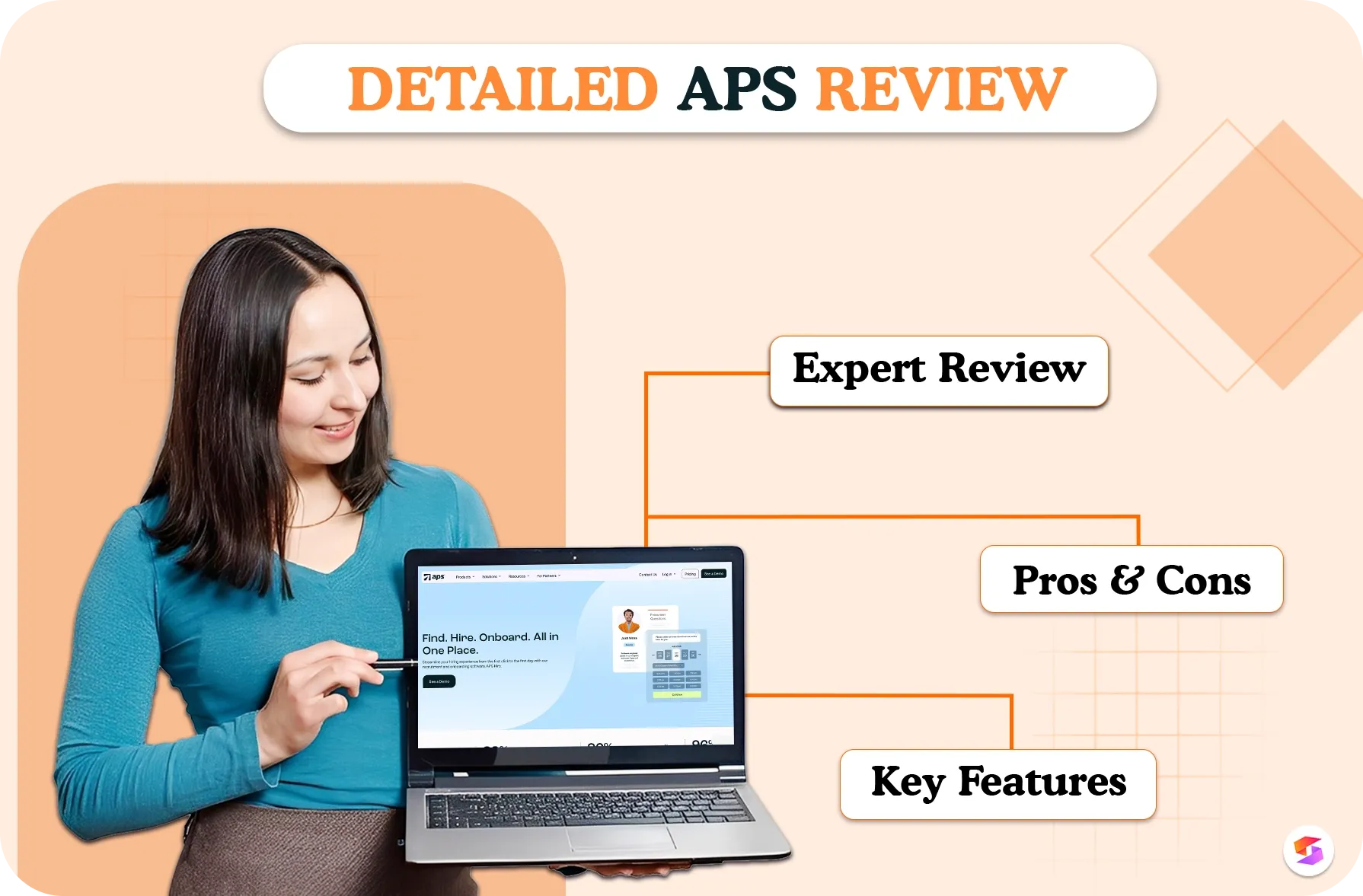In the fast-moving world of recruitment, resume parsing technology has changed everything. Sarah, an HR expert, remembers manually sorting through resumes was time-consuming and prone to errors and often missed top candidates. With 250 resumes on average for each corporate job (Glassdoor), early keyword-based screening tools were not enough.
Today, advanced AI-driven systems have changed this process.
These tools now use Natural Language Processing (NLP) to understand the context of keywords and give a more accurate candidate analysis. LinkedIn says 67% of recruiters find AI has made their jobs easier, especially when screening candidates.
AI-driven resume parsing has cut resume review time by up to 75% (SHRM), making recruitment faster and more effective. This technology allows employers to quickly and accurately find top talent and not miss any potential hire.
Interested to know how this can help you find the best talent? Read on to find out about the future of resume parsing technology and how it’s changing the hiring landscape.
Key Points
- Resume parsing technology has evolved.
- Automated resume parsing solutions are more accurate and efficient than manual keyword-based screening.
- Advances in NLP and AI have enabled contextual understanding and transparency in candidate selection.
- Leading AI-powered resume parsing tools like Parseur are shaping the future of recruitment by automating data extraction and streamlining the hiring process.
- Resume parsing technology benefits both employers and job seekers by making recruitment more efficient and fair.
Early Beginnings: Basic Keyword Matching
In the old days, finding the right candidates was a manual task for HR pros and recruiters. They would go through many resumes to find the best ones. Then, applicant tracking systems (ATS) came along. These systems made screening resumes automatic by using keywords to pick out top candidates.
Manual Screening and Keyword Based Parsing
This was good for handling many resumes but had its limitations. It didn’t always get the full picture of a candidate’s skills and experience. It was all about finding certain keywords and missing out on great candidates.
The early resume parsing technology was a big step in automating recruitment. But it showed there was a need for better tools that could really understand candidates and improve the resume screening process.
NLP and AI Integration
With the rise of natural language processing (NLP) and artificial intelligence (AI) we look at resumes differently. NLP lets systems understand more than just keywords in resumes. It helps them understand the context and nuance.
Now AI can see the content, structure and formatting of resumes. It finds important information and sees if a candidate fits a job. Intelligent resume analysis by NLP and AI makes hiring with ai powered recruitment better and faster.
- NLP gets the context and meaning of resume words, not just keywords.
- AI looks at a candidate’s skills, experience and qualifications to see if they fit.
- NLP and AI have changed how companies screen and pick candidates. This means more accurate and efficient hiring.
With natural language processing and artificial intelligence, resume parsing has evolved. It now gives a deeper look into candidate profiles. This has changed how companies use AI-powered recruitment and intelligent resume analysis.
Today: Contextual Understanding and Accuracy
Resume parsing technology has come a long way with NLP and AI. Now, these systems use smart algorithms to understand resumes better than just looking for keywords. They can get the deeper meaning in resumes.
Now, resume screening and candidate shortlisting is more precise and fast. These systems analyze the resume as a whole. They can spot skills, qualifications and experiences more accurately.
- Contextual understanding: Modern automated resume parsing uses NLP to get the actual meaning of resume information.
- Improved accuracy: Machine learning makes these systems better over time. This means they can extract text and evaluate candidates more accurately.
- Faster efficiency: Better resume parsing means a smoother candidate shortlisting process. This means better hiring decisions.
Resume parsing gets better and better. Keep an eye on context and accuracy, and you’ll make smart decisions and find the right candidates more easily and with more confidence.
Future of Resume Parsing Technology
Technology is evolving, and resume parsing is no exception. In the near future, we will see more advanced AI systems that use enhanced natural language processing (NLP), computer vision and predictive analytics. These will enable resume parsing tools to get a deeper understanding of the information in resumes and give recruiters and hiring managers a clearer and more detailed view of a candidate’s skills and potential.
- AI Advancements:
- Enhanced NLP, computer vision and predictive analytics.
- Better understanding of resume content for better candidate insights.
- Integration with Recruitment Tools:
- Seamless integration with video interviews and online assessments.
- Faster and more efficient hiring process to find the right talent.
AI-powered resume parsing will change how companies approach hiring and lead to more intelligent recruitment strategies. There’s also a growing focus on intelligent resume analysis to make better hiring decisions. This will mean happier employees and lower turnover rates.
- Business Impact:
- Smarter decisions lead to higher employee satisfaction.
- Lower turnover and better talent retention.
- Continued resume parsing will be key to success in the future.
In the end, as resume parsing technology gets better, it will help businesses find and retain top talent and drive future success.
Frequently Asked Questions
Q1. What is the evolution of resume parsing technology?
Ans. Resume parsing technology has moved from simple keyword checks to advanced AI systems. These systems use natural language processing (NLP) and machine learning to understand resumes better. This means finding the right candidates is easier and faster.
Q2. How have applicant tracking systems (ATS) changed resume parsing?
Ans. Applicant tracking systems (ATS) brought resume parsing into the picture. Early ATS used keywords to select candidates. Now, with NLP and AI, they understand resumes better, and candidate evaluation is more accurate.
Q3. How does natural language processing (NLP) improve resume parsing?
Ans. NLP goes beyond keywords. It helps parsing systems understand the context and details in resumes. This way, NLP can spot relevant skills and experiences, and candidate matching is more accurate.
Q4. Where are we today with resume parsing technology in terms of context and accuracy?
Ans. Today, resume parsing is all about getting better at context and accuracy. It uses advanced NLP and machine learning to dig deeper into resumes. This means it can spot skills and experiences beyond keywords and better candidate evaluation and shortlisting.
Q5. What’s coming in resume parsing technology?
Ans. AI in resume parsing has a lot to look forward to with enhanced NLP, computer vision and predictive analytics. These will parse resumes even better and give recruiters a more detailed view of a candidate’s potential. Combine these with video interviews and online assessments, and hiring will be smarter and more complete.



